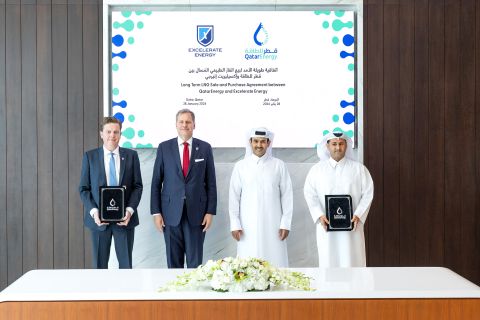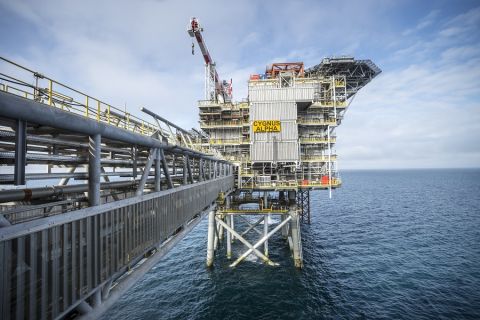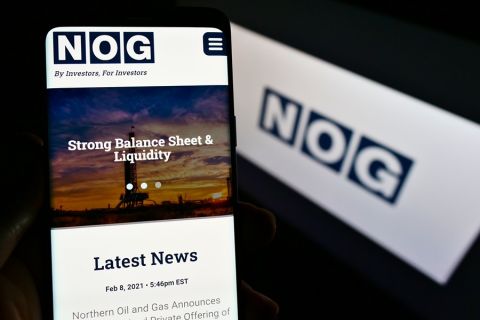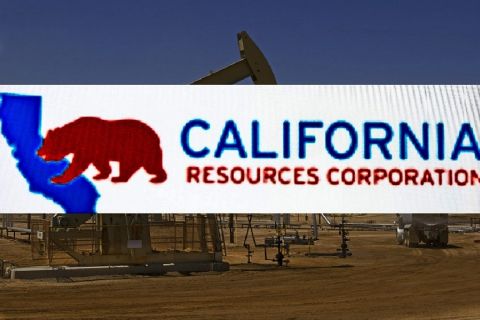The Eagles said during their first reunion concert a few years ago, after being off the road for 20 some years, “We never broke up; we just took a vacation.” Thomas A. Petrie and Jon C. Hughes might say the same.
Partners in energy investment banking for 26 years, they and some colleagues have banded together in a new iteration as Petrie Partners LP in Denver. This follows their recent five-year stint at Bank of America Merrill Lynch, where Petrie was vice chairman and Hughes was a managing director in the bank’s energy group. In 2006, Hughes was the principal negotiator when Merrill Lynch acquired Petrie Parkman & Co., the boutique they had co-founded in 1989.
If anyone can name drop in the mergers, acquisitions, and divestitures (M, A&D) world, it is this pair. Petrie has been an active advisor on more than US $200 billion of energy transactions over a career that spans four decades. One of the former Petrie Parkman’s most noteworthy deals was advising the US Department of Energy (DOE) on its sale of the Elk Hills Naval Petroleum Reserve in California to Occidental Petroleum Corp. in 1998 for $3.7 billion – the largest US privatization ever and one of the largest divestitures ever in the oil industry at that time.
This time around, Petrie Partners will be more streamlined, with a focus on strategic advisory work, M, A&D, and private placements versus public offerings, equity research, or sales and trading.
Wanting to know about their M&A outlook, we met with Petrie and Hughes at their temporary offices in Denver, a unique castle-like building that used to be a gentleman’s gambling club – the humor of which is not lost on these two solid investment bankers.

Thomas Petrie serves as chairman of Petrie Partners. (Photos courtesy of Lowell Georgia)
Why not rest on your laurels; why jump back into the fray?
Thomas Petrie: It’s a delight to have it back together and be with people you know and trust who’ve been through the cycles. The genesis of the idea was really not mine; it was Jon’s and my other partners’. I was flattered, but it is not so much about me as it is about the fact that key elements of the team wanted to come back together. I will be chairman and Jon the CEO. He will really run this.
Jon Hughes: I personally am more comfortable in a client-focused boutique situation. When I left Bank of America in March 2011, I started thinking about this. We had carved out a nice niche at Petrie Parkman, and we had an individualized approach to serving our clients. We had built a reputation of trust.
I think we did 200-plus transactions – some $85 billion in M, A&D alone – during our time at Petrie Parkman. When we sold it to Merrill Lynch in 2006, there was a strong strategic basis for the deal, but it turned out that Merrill had some issues. We met a lot of good people at Bank of America Merrill Lynch, but in the end we feel we are more boutique-oriented. It was an attractive thing for Tom to come back as he has an irreplaceable wealth of knowledge and cycle-tested experience.
What kind of advice do these companies need?
Petrie: We help managements with their strategic thinking whether they are private or public. We are able to maintain the highest degree of confidentiality. At Petrie Parkman our clients included the DOE and Saudi Arabia, so we understand the sensitivities of those kinds of players. We can see the need for objective inputs on strategic advisory matters. There can be inherent challenges in strategic thinking if managements have too many other irons in the fire running their day-today businesses.
Hughes: We’re not going to be revenue-driven quarter to quarter. We’re doing this because we love the business and working with clients we enjoy and respect. We intend to keep a reasonably small footprint.
Do you expect to see more M&A in the next few years?
Petrie: There are several drivers now identifiable. For one, there is abundant liquidity with likely aquirers. Majors and large-cap independents have more than $100 billion of available cash on their balance sheets, have generally been late to build shale acreage holdings, and can always use new ways to grow organically. In addition, large private equity firms are focused on investing in petroleum ventures, and international players are becoming more comfortable with US operations.
What are some of your concerns and observations?
Petrie: There are big energy challenges ahead. The oil and gas business is so strategic to the future of the US. Energy is a big, big part of our economy. We can’t get from here to there without fossil fuels. We want to help private capital sources and public companies navigate those waters. I have a lot of faith the industry will come out the other side in strong shape.

Jon Hughes serves as CEO of Petrie Partners.
What kind of issues are your clients mentioning to you?
Hughes: They are talking about the marriage of horizontal drilling and fracturing and the implications and costs of the technology. A lot of companies we work with have ample opportunities, and they’re interested in how to most efficiently develop them. Should they sell some assets, should they bring in a partner, or do an offering? How do they position themselves to go up the food chain?
Petrie: Companies have to figure out how to drill enough to validate their acreage but not over-exploit it. As you move from validation to exploitation, that’s a different skill set, an exciting new dimension.
For the last 30 years, we worked with a 10-year reserve life for natural gas. Today we can argue whether it’s 50 years, 75 years, or 100. We now have forward planning, and we’re talking about what kind of role we will play in international markets.
What role should government play in all this?
Petrie: The role of government is still open for debate, but if you think of the priorities of the country, probably 80% of people say it’d be education, health care, and energy. If we don’t get energy right, we’re not going to be able to afford the rest, so that makes energy the number one priority. We’ve got the options to work with now, and we couldn’t say that a decade ago.
Hughes: And as an industry we’ve got the right technology currently available; it’s not 10 years out. We have the technology, we have the will, and we have the capital. But we live in an era of empowered regulators, so as an industry we will probably suboptimize relative to our potential.
Petrie: We also have an energized anti-fossil-fuel industry that is fairly clever in using litigation and misleading media channels to create fear and raise doubts about the energy industry. Unfortunately, a lot of people can be persuaded with misinformation. The industry is doing better getting the facts out, but we cannot assume the battle is over.
Recommended Reading
Excelerate Energy, Qatar Sign 15-year LNG Agreement
2024-01-29 - Excelerate agreed to purchase up to 1 million tonnes per anumm of LNG in Bangladesh from QatarEnergy.
UK’s Union Jack Oil to Expand into the Permian
2024-01-29 - In addition to its three mineral royalty acquisitions in the Permian, Union Jack Oil is also looking to expand into Oklahoma via joint ventures with Reach Oil & Gas Inc.
Eni, Vår Energi Wrap Up Acquisition of Neptune Energy Assets
2024-01-31 - Neptune retains its German operations, Vår takes over the Norwegian portfolio and Eni scoops up the rest of the assets under the $4.9 billion deal.
NOG Closes Utica Shale, Delaware Basin Acquisitions
2024-02-05 - Northern Oil and Gas’ Utica deal marks the entry of the non-op E&P in the shale play while it’s Delaware Basin acquisition extends its footprint in the Permian.
California Resources Corp., Aera Energy to Combine in $2.1B Merger
2024-02-07 - The announced combination between California Resources and Aera Energy comes one year after Exxon and Shell closed the sale of Aera to a German asset manager for $4 billion.





